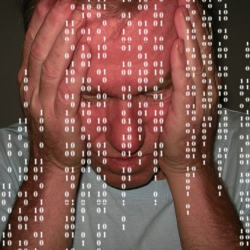To provide the best experiences, we use technologies like cookies to store and/or access device information. Consenting to these technologies will allow us to process data such as browsing behaviour or unique IDs on this site. Not consenting or withdrawing consent, may adversely affect certain features and functions.
The technical storage or access is strictly necessary for the legitimate purpose of enabling the use of a specific service explicitly requested by the subscriber or user, or for the sole purpose of carrying out the transmission of a communication over an electronic communications network.
The technical storage or access is necessary for the legitimate purpose of storing preferences that are not requested by the subscriber or user.
The technical storage or access that is used exclusively for statistical purposes.
The technical storage or access that is used exclusively for anonymous statistical purposes. Without a subpoena, voluntary compliance on the part of your Internet Service Provider, or additional records from a third party, information stored or retrieved for this purpose alone cannot usually be used to identify you.
The technical storage or access is required to create user profiles to send advertising, or to track the user on a website or across several websites for similar marketing purposes.
 The bosses of many of Britain’s biggest businesses are so disengaged from their workers and the company hierarchy so embedded, that they should start calling themselves Chief Elusive Officers. That is the key finding of a survey of companies across western and northern Europe and North America into what employees think of their chief executives carried out by HR software firm Unit4. (more…)
The bosses of many of Britain’s biggest businesses are so disengaged from their workers and the company hierarchy so embedded, that they should start calling themselves Chief Elusive Officers. That is the key finding of a survey of companies across western and northern Europe and North America into what employees think of their chief executives carried out by HR software firm Unit4. (more…)











 Artificial intelligence (AI) and emerging technologies such as virtual personal assistants and chatbots will replace 69 percent of managers’ workload by 2024,
Artificial intelligence (AI) and emerging technologies such as virtual personal assistants and chatbots will replace 69 percent of managers’ workload by 2024, 


 One in six employees (17 percent) has been forced to take time out from their career due to stress or mental health pressures, a survey of 3,000 people has suggested. According to the research from
One in six employees (17 percent) has been forced to take time out from their career due to stress or mental health pressures, a survey of 3,000 people has suggested. According to the research from 




 Data entry is the world’s most hated office technology task, with workers wasting about 40 percent of their day on this and other ‘digital admin’, a study has claimed. In a survey of 10,500 office workers spanning 11 countries, respondents said they average more than three hours a day on manual, repetitive computer tasks which aren’t part of their primary job and are ripe for human error.
Data entry is the world’s most hated office technology task, with workers wasting about 40 percent of their day on this and other ‘digital admin’, a study has claimed. In a survey of 10,500 office workers spanning 11 countries, respondents said they average more than three hours a day on manual, repetitive computer tasks which aren’t part of their primary job and are ripe for human error. 












January 24, 2020
Workplace culture can eat strategy for breakfast
by Alistair Craig • Comment, Workplace design